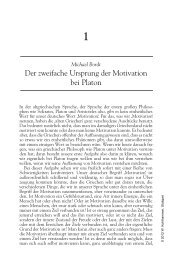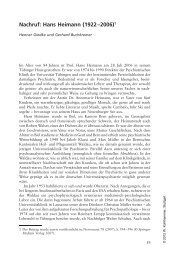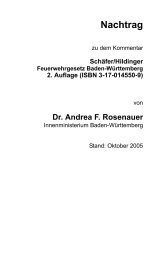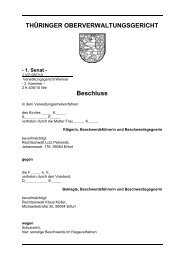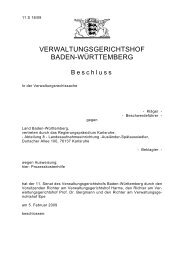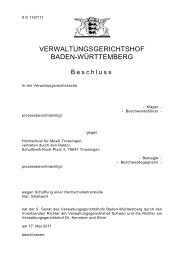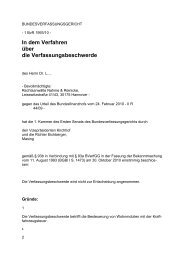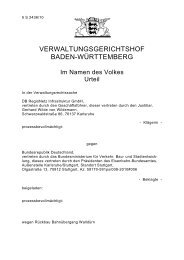You also want an ePaper? Increase the reach of your titles
YUMPU automatically turns print PDFs into web optimized ePapers that Google loves.
Synchronic Analysis 41<br />
The Philistines proved less successful against Mesopotamian powers than they had<br />
against Egypt and local powers. The five city states paid tribute to Assyria for a<br />
while, specifically to Tiglath-pileser III, who captured Ashkelon. 15 Then Sargon II<br />
(r. 722–705) led his army to victory over a Syro-Palestinian rebellion and over<br />
Egypt. In the process he defeated Gaza and Ekron, and attached Ashdod to his<br />
sphere of influence. 16 He claimed to have defeated Gath (not mentioned in Zech<br />
9:5–7) as well. <strong>17</strong> His successor Sennacherib had to reassert control over those cities.<br />
Subsequently, both Babylon and Persia maintained control over Philistine territory.<br />
Verse 5 moves from Ashkelon to Gaza to Ekron, where it reverses the names<br />
of the first two cities, naming Gaza, then Ashkelon. One should note the structure<br />
of v. 5. Basically, it consists of a chiasmus built around Ekron.<br />
Ashkelon will see and be afraid,<br />
and Gaza will writhe exceedingly;<br />
and Ekron [too], because her hope will wither.<br />
The king will be destroyed from Gaza,<br />
and Ashkelon will not be ruled.<br />
The verse begins by predicting that Ashkelon, the finest port on the southern<br />
Mediterranean coast, would see God’s destruction of Tyre, and would experience<br />
fear (of undergoing a similar fate?). It ends by predicting that Ashkelon would be<br />
“uninhabited,” as most translations read. Meyers and Meyers, however, argue that<br />
the Hebrew root בשׁי often means “ruler” when pointed as a participle, and that<br />
the verbal form used here carries the meaning “ruled” (following as it does fairly<br />
closely the word “king”). 18 So the verse means that Ashkelon would lose its king<br />
as a result of God’s actions. In lines 2 and 4, the verse predicts the same loss for<br />
Gaza, which would suffer as a consequence. The defeat of these kings would be a<br />
necessary precursor to God’s rulership over the area. The middle line of the verse<br />
simply says that Ekron would lose hope, perhaps after losing its king too.<br />
The fourth and last Philistine city mentioned19 was Ashdod (v. 6a), also a<br />
coastal city, lying about as far north of Ashkelon as Gaza lay south. The city seems<br />
to have been a provincial capital under the Persians. Verse 6 envisions a “villain”<br />
or “contemptible person” ruling the city. It may have been clear to the original<br />
readers whom the author had in mind–if indeed he intended a certain individual.<br />
Regardless, the phrase is loaded with sarcasm. Which cities would be worse off:<br />
Ashkelon, Gaza, and Ekron, which had no king, or Ashdod, which had a base man<br />
for a king? It did not matter. He would suffer the same fate as the other kings:<br />
God would remove him too. God would cut off all the Philistine “kings,” i.e., “the<br />
majesty of the Philistines.” Alternatively, one can translate this phrase “the pride<br />
15 Tiglath-Pileser: “Campaigns in Syria and Palestine,” ANET, 282–283.<br />
16 Sargon II: “The Fall of Samaria, Analistic Reports,” ANET, 284–285.<br />
<strong>17</strong> Ibid., 286.<br />
18 Meyers and Meyers, Zechariah 9–14, 109–111.<br />
19 Gath, the fifth Philistine city, is not mentioned. Archaeological digs have found massive<br />
destruction at a level dateable to the late ninth century BCE, explaining why the city<br />
is rarely mentioned in later texts. See Carl S. Ehrlich, “Gath,” NIDB, 2.524–525.<br />
© 2012 W. Kohlhammer, Stuttgart



